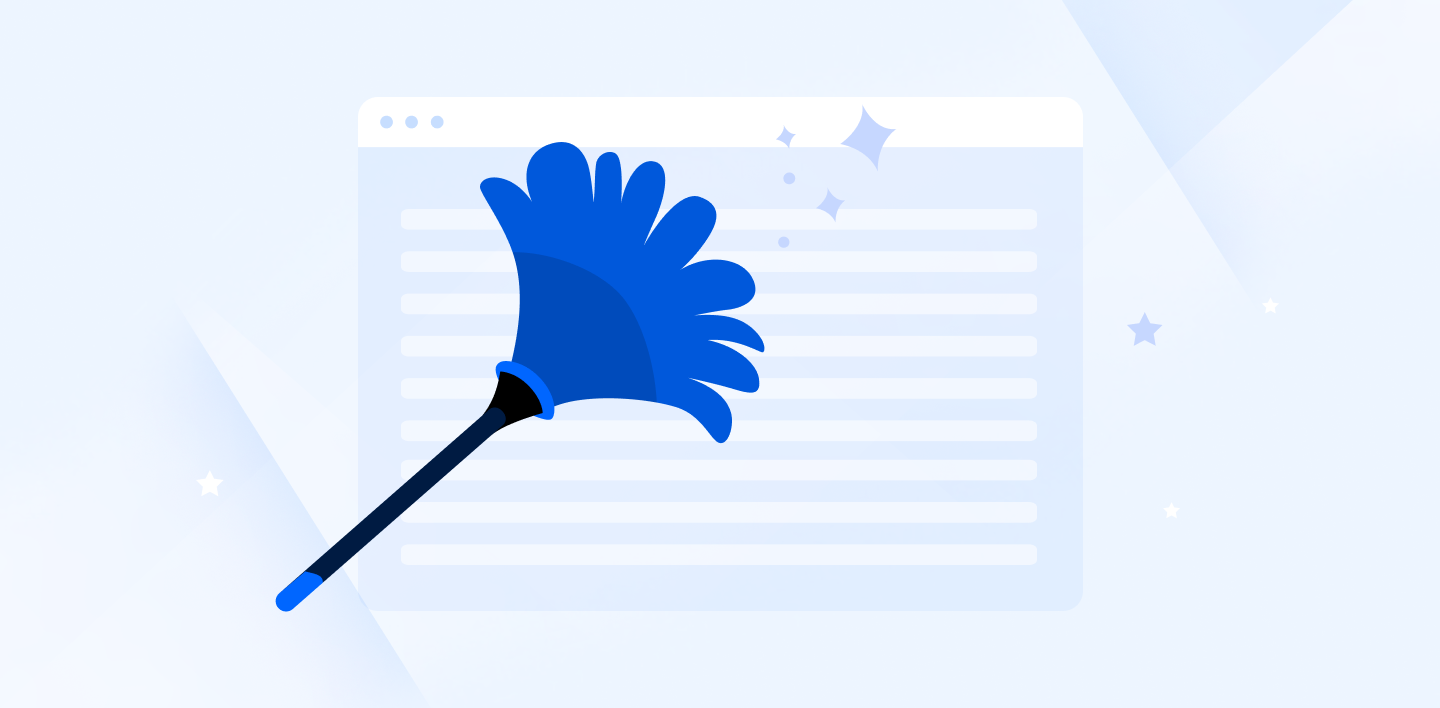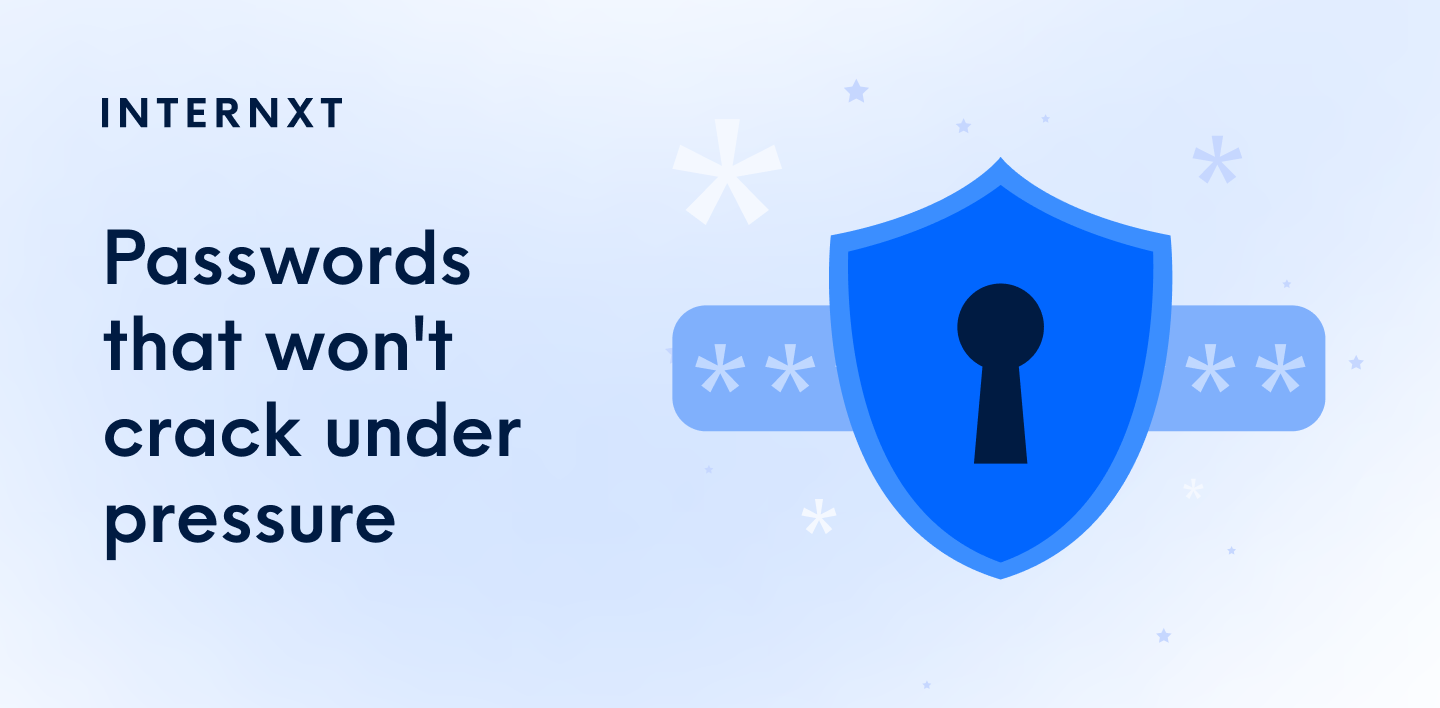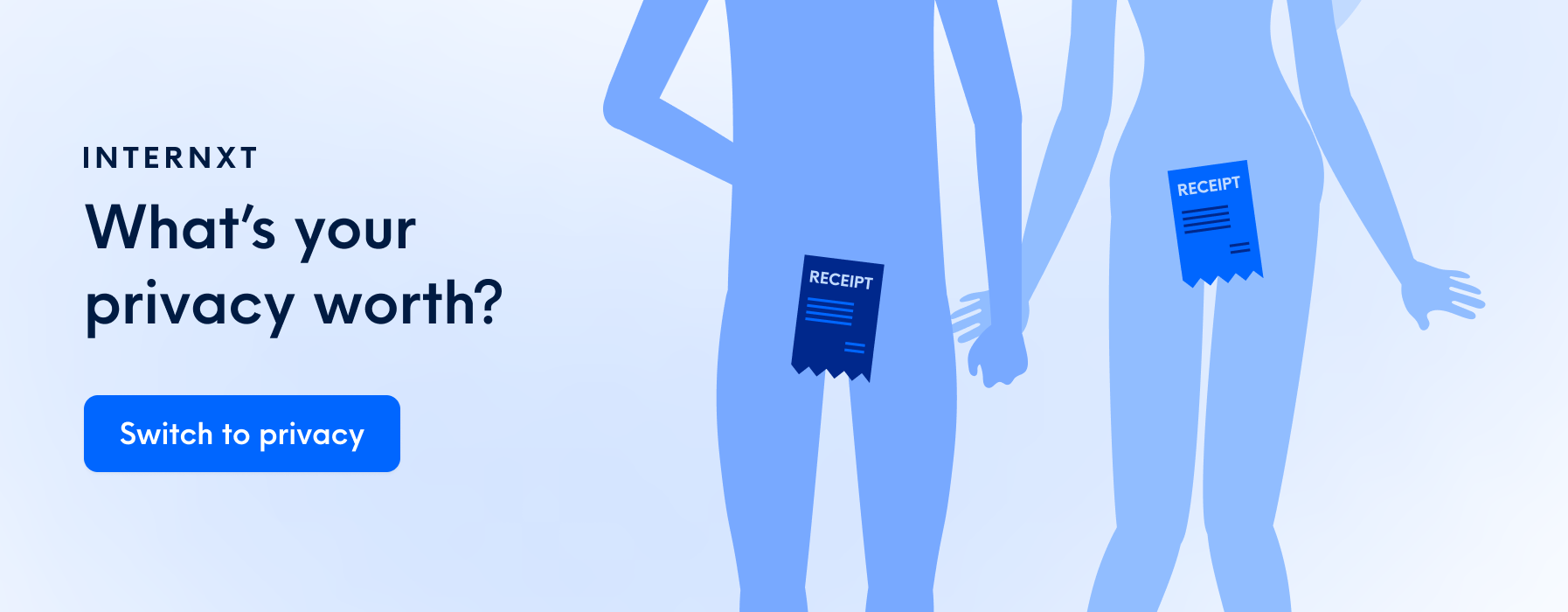8 Cyber Hygiene Habits to Keep You Safe Online

We are all familiar with the importance of hygiene in our day-to-day lives so as not to get sick or spread germs to others; this same concept can also ring true in our digital lives by applying cyber hygiene habits to keep our privacy and security safe online.
It is important to familiarize ourselves with these procedures to avoid common cybersecurity mistakes that can be detrimental to your online privacy, such as loss of files, corrupted data, or identity theft.
With the 8 tips presented throughout this article, you can clean up your digital space and find out what is the best way to protect personal information.
What Does Cyber Hygiene Mean?
Cyber hygiene refers to an individual's habits and precautions they take to maintain their hardware and software.
Maintaining proper cyber hygiene requires establishing a routine and strong habits so that devices stay healthy and resist the evolving threats cyber attacks can have on your precious devices and files.
Why Is Cyber Hygiene Important?
The relevance of cyber hygiene has increased since the COVID-19 pandemic, as businesses and employees have adapted to work-from-home or hybrid working styles.
The increase of people working from home means that companies have to adapt to ways of storing and accessing sensitive information. As a result, this has led to a surge in cyberattacks targeting workers using their own devices and networks to access the private data of their businesses and personal information.
Unsurprisingly, methods of protection and cyber hygiene became more important to push back against threats of such as malware, phishing, and identity theft.
In response to the potential vulnerabilities of online collaboration and the importance of cloud storage, implementing cyber hygiene became a security measure many people have adopted to avoid becoming a cybercrime target.
What Are The Benefits of Good Cyber Hygiene?
Caring for your cyber hygiene by regularly maintaining your files and devices will greatly benefit their overall security and performance. Regular tasks such as keeping up to date with updates and doing some spring cleaning of old or deleted files will keep your computer running smoothly and efficiently.
Another benefit, and probably the most important, is security. Keeping up-to-date with current security issues and taking steps to protect yourself against them is the most valuable technique you can implement for your cyber hygiene and will reduce the risk of becoming a target of cybercriminals.
Luckily, by following the right measures, you can protect yourself, your business, or your family members with the following cyber hygiene top tips.
What Are Key Steps to Maintain Proper Cyber Hygiene?
The key steps to proper hygiene require constant vigilance and will have to be adapted based on individual needs and updates in the cybersecurity space. Here are the best ways you can start to take control of your cyber hygiene.
Create and Maintain Strong And Unique Passwords
When creating a strong password, using a reputable password generator is recommended, as this software can create passwords that are resistant to powerful software that aims to crack a user’s password.
Applying the necessary cyber hygiene techniques to your password protection should follow the following rules:
- Keep it long: It is recommended your password should be at least 12 characters
- Unique: Only use your password once and never repeat it, as this increases your exposure to attacks across other accounts
- Random: Use various lower and upper case characters, including numbers and characters.
So a strong password will look something like this: 8tj%3x3YL49s
Of course, it would be too time-consuming to create unique passwords like this and remember them. Therefore the best way to incorporate these strong passwords is to use a strong password generator combined with a reputable password manager to store and protect them.
If you use a password generated with sufficient length and complexity, it could take a powerful computer centuries to crack through brute-force attacks.
Incorporating these types of passwords into your accounts is an excellent addition to your cyber hygiene routine to protect your important files, emails, or other sensitive information.
Enable Multifactor Authentication (MFA)
MFA is a method to verify that whoever is trying to gain access to the account is authorized to do so. In this case, a username and password are insufficient to gain access, and further authentication is required. In cybersecurity, there are three main factors of MFA:
- Knowledge, such as a PIN or one-time password
- Possession, such as a physical key, card, or even your smartphone that you own
- Inherence, or biological factors, which can be biometric data, your fingerprint, voice, or facial recognition
Incorporating MFA into your cyber hygiene habits is strongly recommended whenever possible.
Unfortunately, it is possible to crack passwords, and the consequences can be drastic once they are. MFA is a good backup against hackers, as they now have another complex barrier to break.
Once you are notified of this attempt by a hacker to steal your password, you can immediately take steps to secure your account without the risk of your privacy being compromised.

Use A Secure Wi-Fi Network
Whether you are working from home, the office, or your local coffee shop, the Wi-Fi you use is an important barrier that helps keep your device safe from hackers trying to access the data being sent through this connection.
Without proper cyber hygiene methods, hackers can exploit your network, take control of your devices, and steal your passwords, files, or important financial information.
To secure your Wi-Fi network at home, you should change the default settings of your network name and password. Default passwords of Wi-Fi can be listed in databases and are well-known by expert cybercriminals.
If you use public WiFi, never conduct activities that expose your sensitive information, such as online shopping, which transmits your bank details and address.
Instead, when using this type of network, choose a trustworthy VPN that encrypts the data transmitted from your devices to stop external parties from viewing the information you are sending through the internet.
Phishing Awareness
Phishing is a common and popular online scam used by cybercriminals as a method to trick the recipient into giving the criminal their sensitive and private information.
Phishing has become much more advanced recently, and your cyber hygiene should therefore be a solid defense system against phishing emails, messages, or phone calls looking to steal your personal information.
Nowadays, phishing attacks commonly happen via email and can happen to anyone, regardless of their tech knowledge. Here are some tips you can incorporate into your cyber hygiene to identify phishing messages:
- Pay close attention to the email address. Scam emails will frequently use company names, such as Google or Paypal, but the email will appear completely different from the official email.
- Check for spelling or grammar errors. Companies spend a lot of time and effort ensuring their emails contain no errors.
- Emails that demand urgent action and that ask for your personal or sensitive information are a huge red flag. Legitimate companies never ask for bank details via email.
- Be aware of suspicious links or files; be cautious of emails with these attachments (.zip, .exe, .scr), as they are associated with malware files.
To combat these types of emails, you can report phishing emails to the companies being impersonated, and their team will investigate further. If you work for a business, be sure to report any suspicious emails before your company or any other colleagues become a victim of a phishing attack
Regular Software Updates
Ensuring the software on your devices, browsers, and applications are up to date is a powerful method to incorporate into your cyber hygiene routines.
Companies will release new updates to fix bugs, performance issues, or security threats. Consequently, out-of-date software will become the target of cyberattacks as they can expose these security threats in your system or any of the apps you use.
To keep your cyber hygiene in tandem with these important updates, you can follow these steps:
- Enable automatic updates for your browsers and operating systems
- Regularly check for new software updates and install them as soon as possible
- Only obtain updates from the official providers and not from outside sources
By scheduling software updates, you will stay up-to-date on security issues and reduce the risk of exploited vulnerabilities in your software.
Conduct Regular Data Backups of Your Important Files
By backing up your important files regularly, you can ensure that you can recover your important files quickly and easily should these files become damaged, lost, or corrupted.
To back up and protect your important files, you can do so by using a physical hard drive or automatically backing up your files to a secure cloud storage service of your choice.
To ensure the best results for your cyber hygiene, consistently backing up your files is the best method to keep your files up to date, as you can go back to the most recent version of the file and not have to worry about losing a large amount of data or important information.
Check Your Social Media Settings
If you use any social media platforms, it is essential to follow good cyber hygiene to ensure you don’t become a victim of people accessing your profile to steal your personal information or sensitive information that could be exploited or sold on the dark web.
The first step you can take in your accounts is to check and adjust the platform’s privacy settings so that you can limit what people can view from your profile to only those you know or trust.
By limiting changing your posts to friends only, for example, you can limit the exposure of personally identifiable information, such as emails, birthdays, or any other information hackers will try to use to gain unauthorized access to your accounts.
Another method of good cyber hygiene for social media is to raise awareness about social engineering techniques which have become popular as the popularity of social media management tools rises.
These attacks are a form of spoofing, a method where the scammer sends email messages asking for personal information by impersonating trusted entities such as banks, popular websites, or even friends, family, or colleagues.
These messages intend to trick the recipient into giving them passwords, bank details, or anything else they can access.
When using any type of social media platform, be wary of these types of attacks, and limit the information you post on these platforms to keep your cyber hygiene consistent and your accounts safe.
Educate Yourself on Cybersecurity
Finally, good cyber hygiene means staying up to date on what is happening in the cybersecurity world. Keep informed about the latest news and updates regarding data breaches or cyber security attacks, and update your security accordingly.
You can also stay updated with the latest scams, malware, phishing, or social engineering attacks by following reliable news sources, podcasts, and blogs or even enrolling in an online cybersecurity course.
Suppose you prefer a more relaxed approach to your learning. In that case, you can entertain yourself with some of the hacker and cybersecurity TV shows that cover the surface level of these topics and present them in a less intimidating manner.

Building Strong Cyber Hygiene for a Safer Future
Cyber hygiene's importance will remain a vital feature of our digital lives as new technologies continue to develop and become integrated into our lives.
Unfortunately, as these new developments aim to positively impact our lives, threats to our security continue to develop with the aim of taking away our privacy, information, and personal data.
Despite this, cyber hygiene is a powerful tool that can protect you from these threats. You can sign up for Internxt cloud storage and make the change to a secure digital lifestyle today.

